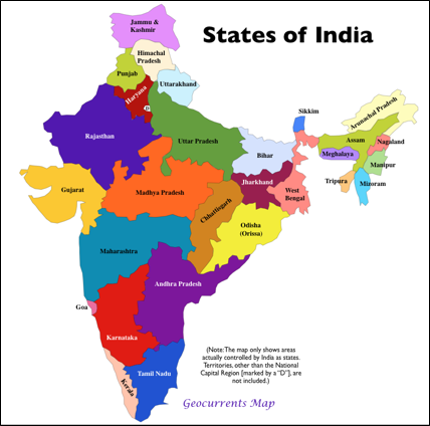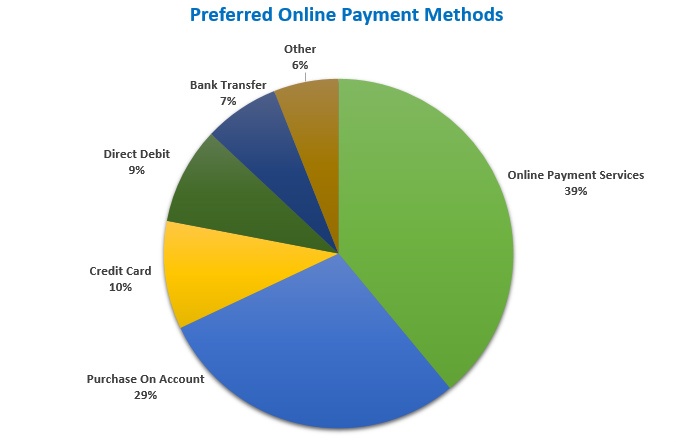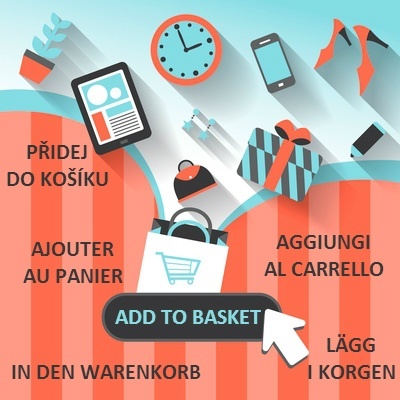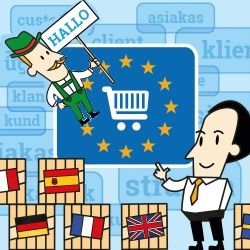Google's perpetual drive for innovation means more disruption is coming our way. An example is Google’s new translation system that has delivered measurable improvements in the fluency of Google Translate. Google has begun rolling out the service across all its languages, chat boxes, web pages, articles, blogs, emails, social media, message forums…First updated were the most commonly used primary languages (English, Chinese, Spanish, Japanese, Portuguese, French, Korean and Turkish), as well as Google’s >192 country specific search engines, the Google Translate website and the Website Translator plugin. Our research shows that Google Translate is now better than ever for personal use, but remains bad for business!
Read MoreInternational Business and Technology Blog
The land grab for internet users in India is in full swing and nowhere more so than in ecommerce. India now has the second largest number of internet users in the world, behind China, but this still means that about 65% of India’s population is not yet on the internet. While there are many Indian tech companies there are surprisingly few independent internet players, leaving the field open to the internet giants of the world. Google, with a historically impenetrable 96% market share in India, is facing serious competition from Chinese search engine giant Baidu. Amazon and Alibaba are dividing up online retail, gobbling up homegrown talent while Uber, Facebook and others all look for a slice of the cake.
Read MoreTags: All posts, Global Markets, Global Ecommerce
Is India’s online world finally coming of age?
Lured by the potential size of the market, an intrepid US manufacturer we know started exporting to India in early 2012. While it found willing in-market partners, the challenge of complex tax structures, patchy infrastructure, poor logistics and out-dated payment systems, meant that its B2B and B2C sales objectives were far from achieved. Yet this year, fortunes appear to be changing.
Read MoreTags: All posts, Global Markets
Leading Chinese search engines
Two years ago, Baidu boasted 80% of the Chinese online search market. Today, Baidu’s market share is estimated at 55% (1). But the winner has not been the otherwise world dominant Google, but other Chinese search engines including Qihoo 360 and Sogou.
While Baidu’s dominant position among the search engines in China has eroded, Google has not been a beneficiary since it has been banned in China as of 2010. Besides censorship, ClickZ (2) cites different online search behavior as one of the factors why Baidu and other domestic search engines have been more successful in China than Google. For example: an average Chinese internet user spends 3-6 times more time on page on average, does not focus on the upper left corner of the page as their Western counterparts do, searches mostly on smartphones and prefers to choose from a list rather than by typing keywords.
Read MoreTags: All posts, Global Markets, International Online Marketing
Google Translate boasts 103 languages, covering 99% of the online population and processes more than 1 billion user translation requests per day. I love Google Translate because it is so easy to use and it costs nothing. I hate Google Translate because the results I get range from an approximation to complete gibberish. Great for personal use, but bad for business. Given the complexity of languages in the world (check out our translation article), those of us challenged with international communications know that quality language translation is extremely complex: it is hugely demanding of expertise and time, and so of money. As they say, “you get what you pay for”.
Read MoreTags: All posts, Global Markets
Our blog How to sell online in Germany introduced the attractiveness of the German ecommerce market and outlined the main expectations of German e-shoppers, including payment methods, delivery, returns, mobility, personalization and terms & policies. Today, we will have a closer look at the theme of German online payment methods.
According to the German E-Commerce and Distance Selling Trade Association (bevh) study, the most popular online payment method preferred by 39% of German e-shoppers are online payment services. Besides the international platform PayPal there are many local online payment service providers such as Sofortüberweisung.de, ClickandBuy and Giropay that are well known and have a significant market share of the online payment services.
Read MoreTags: All posts, Global Markets, Global Ecommerce
It’s all about the user – whether that user is German, English, French, Italian or Estonian - any of the 500+ million European citizens from one of the 51 countries, speaking (and reading) dozens of languages. In the European Union (EU) alone we have 28 countries and 24 officially recognized languages. It is therefore not surprising that corporations seeking to grow their exports and business in European markets face significant challenges. An online strategy, fit for purpose, is an essential element for success in Europe and that strategy has to focus on your specific targeted profiles who first have to easily find your website site (through the plethora of search engines) and then use it, knowing that today’s users demand localized, relevant content.
Read MoreThe term Nordics describes a geographical and cultural region in Northern Europe and the North Atlantic, comprising 5 countries: Norway, Sweden, Denmark, Finland and Iceland.
Much envied with regards to their wealth, open societies, technologies and, of course, well-being. Non-Nordics wonder how do they do it? How does a vast region with just 25 million people, speaking 4 languages, generate a GDP of $850Bn, making them amongst the richest countries in the world and ranking 6th in theEuropean Union (EU) after Germany, the United Kingdom, France, Italy and Spain and they all seem to be so happy?
Read MoreTags: All posts, Global Markets
10 CMS requirements for building multilingual websites
Posted by Tereza Santava on Tue, Oct 06, 2015
Content Management Systems (CMS) are not our fellow human beings, they are just online tools for building and editing websites. So why do so many of us feel so passionate about them? If you discover a new CMS feature that will simplify your work, you love your CMS. But if it doesn’t work as you instructed and the editor displays a mess instead, you hate your CMS. The relationship gets sometimes complicated. But whatever that is, today’s question that we will answer is: What should you require from your CMS when building multilingual websites?
Read MoreIn 2014, Germany boasted over 51 million online consumers, only superseded by China, Japan and the USA. In terms of e-commerce, Germany comes 2nd in Europe after the UK, with over €41 Bn annual online sales, as reported by the German E-Commerce and Distance Selling Trade Association.
E-commerce sector represented 9% of Germany’s total retail industry in 2014. The German E-Commerce and Distance Selling Trade Association forecasted a 12% growth in 2015, reaching a revenue of nearly €47 Bn. Other sources predict even higher growth rates, between 20-30%. According to the Association of the German Internet Industry, more than half (53%) of German GDP generated in 2017 will be e-commerce related (compared to 37% in 2012).
Read MoreTags: All posts, Global Markets, Global Ecommerce










